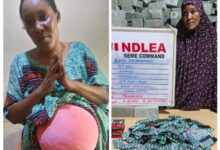
The Senate hearing room in Abuja was already buzzing by the time Prof. Muhammad Ali Pate, Nigeria’s Minister of Health and Social Welfare, settled into his seat. Civil society leaders, medical experts, journalists, and lawmakers had gathered for a single purpose: to confront the worsening health crisis linked to the country’s soaring consumption of sugary drinks.
For years, Nigeria relied on a flat ₦10-per-litre tax on sugar-sweetened beverages (SSBs). When introduced in 2021, the levy was celebrated as a step toward reducing the rising tide of diabetes, heart disease, obesity, and other non-communicable diseases. But with inflation eroding its impact, the tax no longer carried weight. A ₦10 fee on a drink that once cost ₦150 simply could not influence consumption in today’s economy.
And the consequences were becoming painfully clear. At the front of the chamber, Senator Adeniyi Adegbomire (SAN), representing the Senate President, delivered the message bluntly.
“₦10 per litre is no longer realistic,” he declared, his words carrying through the hall. “Not in this economy—and not with the cost of treating these diseases.”
Heads across the room nodded in agreement. Doctors, advocates, and public-health experts had been warning for months that reform was overdue.
The day’s hearing centered on a bill sponsored by Senator Ipalibo Harry Banigo. The proposal sought to scrap the outdated fixed tax and replace it with a stronger, percentage-based levy tied directly to retail prices. A portion of the revenue would be earmarked for public-health programmes nationwide.
When Prof. Pate rose to speak, he wasted no time stressing the urgency.
Nigeria, he warned, was facing a public-health emergency. Diseases that were once considered rare—diabetes, stroke, obesity, hypertension, heart disease—had become some of the country’s leading killers.
“We cannot protect 230 million Nigerians with a tax that no longer works,” he said firmly. He urged lawmakers to raise the SSB tax to at least 20% of retail price and dedicate no less than 40% of the revenue to health programmes. “This is a valuable funding stream—and a lifesaving one,” he emphasized.
Civil society groups backed the call for reform.
Akinbode Oluwafemi, Executive Director of the Corporate Accountability and Public Participation Africa (CAPPA), captured the mood in a single analogy: a ₦10 tax, he said, was like “trying to fight a wildfire with a cup of water.”
He outlined CAPPA’s position:
A 50% tax based on retail price
A minimum benchmark of 20%
Mandatory earmarking for health programmes
A national task force for monitoring and enforcement
“If we want real results,” Oluwafemi said, “we need a real policy.”
Representatives from CISLAC, the Diabetes Society of Nigeria, the Nigerian Cancer Society, the National SSB Tax Coalition, and others echoed similar concerns. Dr. Mansur Ramalan of the Diabetes Society warned that diabetes prevalence had climbed to about seven percent—an alarming figure in a country of Nigeria’s size.
He dismissed fears that a higher tax would harm government revenue.
“On the contrary,” he said, “revenue will increase—by more than 200 percent.”
Not everyone focused solely on health implications. A representative of the Ministry of Finance, Bashir Abdulkadir, reminded the committee that the president retains the authority to vary excise rates and noted that a broader tax review—covering sugary drinks and alcohol—was already underway.
Still, members of the Senate Committee held their ground. Their responsibilities, they emphasized, were clear: conduct public hearings, amend laws, and act in the best interest of Nigerians.
By the close of the session, the consensus was unmistakable. Nigeria had outgrown its ₦10-per-litre SSB tax. To curb harmful consumption, strengthen the health budget, and save lives, the country needed a stronger, more responsive tool.












One Comment